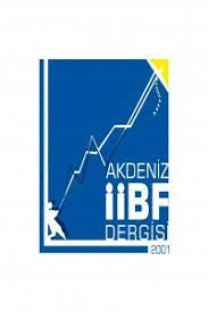Avrupa Birliği'nin Orta Politikasının Analizi: Proje Bazlı Yaklaşımdan Stratejik İşbirliği Anlayışına Geçiş
Orta Asya bölgesi, enerji kaynakları ve jeopolitik konumu nedeniyle, Avrupa Birliği için stratejik bir öneme sahiptir. Bu durumdan ötürü, Birlik, 1991 yılından itibaren, Orta Asya devletleri ile ikili ilişkilerini geliştirirken, bölgenin kalkınması için bölgesel projelerde aktif rol üstlenmiştir. Birlik ile bölge ülkeleri arasındaki ticari ilişkilerde gelişme göstermektedir. Ancak Birliğin, bölgesel stratejilerinde ifade ettiği hedeflerini kısa vadede hayata geçirmesi mümkün değildir. Çünkü bölge rejimleri otoriter anlayışı benimsemiştir. Birlik üyeleri, kendi stratejik çıkarlarına zarar gelmemesi için demokratikleşme konusunda bölge ülkelerine baskı yapılmasına karşı çıkmaktadır. Yine de Birliğin, bölge projelerine mali ve teknik sağlaması ve bölge ülkeleriyle Ortaklık ve İşbirliği Antlaşmaları çerçevesinde ilişkilerini geliştirmesi, bölge istikrarına ve kalkınmasına olumlu etki yapmaktadır.
Analysis of the EU's Central Asia Policy: From Project Oriented Approach to Strategic Partnership
Due to its vast energy resources and its geopolitical situation, the Central Asia is still strategically so important for the European Union. For that reason, since 1991 the Union has developed its bilateral relations with the Central Asian states and it has provided technical and financial assistance to the regional projects. The trade relations with the Union and regional states have been improved. But the Union can not materialize it objectives mentioned by the regional strategies within a very short time, because the regional regimes are authoritarian and some Union members do not desire to implement coercive measures against the regional states in order to see democratization and respect for human rights in the region because of not damaging their relations with the Central Asian states. However, providing financial and technical assistance by the Union and the development of its relations with the regional states within the framework of Partnership and Cooperation Agreements have made positive contribution to the regional stability and development of the regional states.
___
- ANDERSEN, S. S. (2000) “EU Energy Policy: Interest Interaction and Supranational Authority”, ARENA Working Papers, WP 00/5, http://www.arena.uio.no/publications/working-papers2000/papers/wp00_5.htm. (Erişim Tarihi: 1 Haziran 2007).
- AVRUPA BİRLİĞİ (2006) “Central Asia Indicative Programme (2007 – 2010)”, Regulation (EC) No. 1905/2006, http://ec.europa.eu/external_relations/ceeca/c_asia/nip_07_10_en.pdf.
- AVRUPA BİRLİĞİ (2006) “European Community Regional Strategy Paper for Assistance to Central Asia for the Period 2007 – 2013”, http://ec.europa.eu/external_relations/ceeca/c_asia/07_13_en.pdf.
- AVRUPA BİRLİĞİ (29 Aralık 1999) “Strategy Paper 2002 – 2006 & Indicative Programme 2002 – 2004 For Central Asia”, Council Regulation No 99/2000.
- AVRUPA BİRLİĞİ KOMİSYONU (11 Nisan 2003) “TACIS Regional Cooperation: Strategy Paper and Indicative Programme 2004 – 2006”. http://ec.europa.eu/external_relations/ceeca/c_asia/2002.htm.
- AVRUPA BİRLİĞİ KOMİSYONU (8 Mart 2006) “Green Paper: A European Strategy for Sustainable, Competitive and Secure Energy”, COM(2006) 105 Final.
- DAVE, Bhauna (Mayıs 2007) “The EU and Kazakhstan: Balancing Economic Cooperation and Aiding Democratic Reforms in the Central Asian Region”, CEPS Policy Brief, Centre for European Policy Studies, 127.
- “European Parliament resolution on the European Security Strategy (2004/2167 (INI))” (9 Şubat 2006) P6_TA (2005) 0133, Official Journal of the European Union, C33E/580.
- “Ferrero – Waldner to attend EU – Central Asia Ministerial Troika 27/28 March” (27 Mart 2007) IP/07/420.
- http://ec.europa.eu/external_relations/ceeca/pca/index.htm.
- http://ec.europa.eu/trade/issues/bilateral/countries/index_en.htm. (Erişim Tarihi: 20 Mart 2008).
- http://ec.europa.eu/external_relations/energy/baku_initiative/index.htm
- http://www.un.org/milleniumgoals/goals.html (Erişim Tarihi: 16 Eylül 2007).
- “Joint Statement by the Council and the representatives of the governments of the member states meeting within the Council, the European Parliament and the Commission on European Union Development Policy: “The European Consensus”” (22 Kasım 2005) 14820/05, DEVGEN 229, RELEX 678, ACP 155.
- MATVEEVA, A. (Temmuz 2006) “EU Stakes in Central Asia”, Chaillot Papers, 91, Institute for Security Studies.
- MELVIN, N. J. (Mart 2007) “The European Union’s Strategic Role in Central Asia”, CEPS Policy Brief, Centre for European Policy Studies, 129.
- “Memorandum of Understanding in the field of energy between the European Union and the Republic of Kazakhstan”, http://ec.europa.eu/dgs/energy_transport/international/regional/caucasus_central_asia/memorandum/doc/mou_kazakshtan_en.pdf,
- “Regulation (EC) No 1638/2006 of the European Parliament and of the Council of 24 October 2006 laying down general provisions establishing a European Neighbourhood and Partnership Instrument” (Kasım 2006) Official Journal of the European Union, L310/1.
- “Regulation (EC) No 1905/2006 of the European Parliament and the Council of 18 December 2006 establishing a financing instrument for development cooperation” (27 Aralık 2006) Official Journal of the European Union, L378/41.
- “The EU and Central Asia: Strategy for a New Partnership” (2006), EU2007.de, EU-CentralAsia-Strategy.pdf. (Erişim Tarihi: 1 Haziran 2007).
- ULUSLARARASI KRİZ GRUBU (10 Nisan 2006) “Central Asia: What Role for the European Union?”, Asia Report, 113.
- ULUSLARARASI KRİZ GRUBU (24 Mayıs 2007) “Central Asia’s Energy Risks”, Asia Report, 133.
- ULUSLARARASI KRİZ GRUBU (6 Kasım 2006) “Uzbekistan: Europe’s Sanctions Matter”, Policy Brief, Asia Brief, 54.
- ZHOUTIS, Eugheniy (Temmuz 2007) “Democratization and Human Rights in Central Asia: Problems, Development Prospects and the Role of the International Community”, CEPS Policy Brief, Centre for European Policy Studies, 134.
- ISSN: 1302-9975
- Yayın Aralığı: Yılda 2 Sayı
- Başlangıç: 2001
- Yayıncı: Akdeniz Üniversitesi
